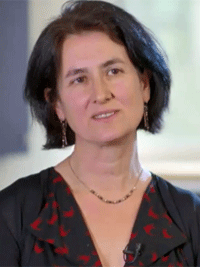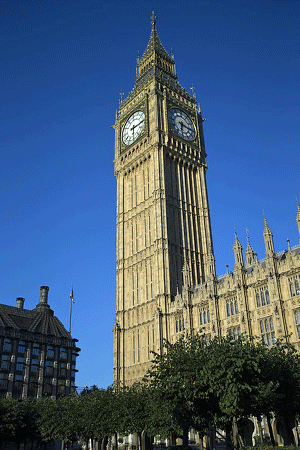Rebecca Hilsenrath is chief executive of the Equality and Human Rights Commission, having previously been their chief legal officer. Before this she was chief executive of legal charity, LawWorks, and prior to this she was a legal adviser in the Treasury Solicitor’s Department. Rebecca studied law at the University of Cambridge.

“…77% of women we interviewed stated they had a negative or possibly discriminatory experience at work as a result of their pregnancy during their maternity leave or return to work. Shockingly, one in nine mothers actually lost their jobs…”
Championing equality and human rights – who wouldn’t want to do this?
I wonder why anybody wouldn’t want to work in the field of equality and human rights, because it feels something that is intrinsically important to all of us. This is something that affects everybody’s identity and everybody’s welfare in terms of fairness and values. Everybody I meet always says, “What an amazing job to have!”
It’s also a very broad perspective. The biggest challenge for the Equality and Human Rights Commission (EHRC ) is that our remit is ‘life’! All of the most interesting political issues of the day cross my desk, so it’s a fascinating place to be. I’ve been a lawyer all my life and I’ve worked in the private sector, the public sector and the voluntary sector. I’ve been motivated by the idea of governance, due process and the idea of doing things properly. That evolved into a real passion for access to justice.
The route to becoming a chief executive

The progression to the Equality and Human Rights Commission was a very natural next step from that. My experience at LawWorks meant the EHRC felt I had a very coherent oversight of what they do when they recruited me. I had been here for a year and a half as chief legal officer before I took on the role of chief executive when my predecessor left. It was a wonderful opportunity to use my leadership skills and continue to evolve these as I’m fascinated by leadership and how people work effectively in that space.
Learning about the challenges faced by people from different parts of society
Personally, I had four sons in five years so I took a career break, came back and worked flexibly, built my career back up and then I started fostering, so I have a foster daughter as well. All these things have taught me a lot about the various challenges that face people from different parts of society, in addition to the fact that I’m Jewish and my faith is very important to me.
All of these things combined give me a huge interest in the issues that the EHRC is responsible for, and I’m proud to be able to champion these.
Background to the Equality and Human Rights Commission
The EHRC has the task of enforcing that legislation, in addition to being the body which protects human rights in this country. Our job is to help make Britain fairer. We do this by safeguarding and enforcing the laws that protect people’s rights to fairness, dignity and respect.

We’re a non-departmental public body (NDPB) but we’re different from most other NDPBs because we have independence enshrined in our statue, and although we are funded by Government, we can (and do) hold them to account. We may take cases against the Government; we will undertake investigations and enquiries, as well as commissioning research. The EHRC is a catalyst for change, an information provider, an influencer, an evaluator, and an enforcer.
On a day to day basis I could be chairing a meeting, I could be talking to ministers or civil servants, I could be working with civil society and voluntary organisations, I could be giving evidence to Select Committees, I could be attending a conference overseas, I could be giving a speech, or I could be meeting colleagues in our other offices in London, Manchester, Cardiff or Glasgow. It’s hugely important for me to be able to connect face to face.
Holding the Government to account on the impact of spending decisions
The Government and public authorities are required to conduct equality impact assessments of their decisions, policies and their implementation. The Treasury carried out an equality impact assessment of the 2010 and 2015 spending review decisions. We carried out a formal assessment in 2010 in which we raised doubts about the way they had measured the impact of three out of nine of the spending review measures.
I did some follow up work with the Treasury to look at improving the assessment process, and that included work to convince the Treasury to conduct a cumulative impact assessment, not just looking at one particular piece of legislation, but looking at how legislation and policies over the years impact on particular groups.
We’ve not be able to persuade the Treasury to do that, but what we have done is commissioned some work of our own. We developed a cumulative impact assessment methodology and we produced a report on the cumulative impact of spending positions on particular groups (like women, children and disabled people) between 2010 and 2015. We completed that work in 2015 and we set out where there had been progress, but also where more needed to happen.
Supporting working mothers

We made some quite stark findings. 77% of women we interviewed stated they had a negative or possibly discriminatory experience at work as a result of their pregnancy during their maternity leave or return to work. Shockingly, one in nine mothers actually lost their jobs, either because they were made redundant or dismissed as a result of being pregnant, or because thing were made so difficult for them they felt they had no choice but to leave.
If you scale up the numbers involved in terms of those that we interviewed an extrapolate that to the numbers of women we know are pregnant in the population as a whole, that would account for 54,000 mothers a year losing their jobs. We found that one in five had experiences harassment or negative comments in relation to pregnancy or related flexible working.
The report was shocking in terms of the scale of the scale of difficulty in an area that many people think that we’ve dealt with. The flipside of that however was that 84% of employers thought that supporting pregnant workers on maternity leave was in the interests of their organisation, so we found a gap between what employers and women thought was going on.
Developing Working Forward
In our report we identified six areas of action and talked about developing leadership for change so employers were attracting better talent and avoiding loss of skills and experience. It is about improving employer practice, more effective management and developing more family-friendly workplaces, improving access to information and advice.
It is also about improving health and safety, which came out of findings where some individuals had really struggled with the physical environment they were in at work when they were pregnant. We wanted to remove barrier to women who were raising complaints. We will be monitoring progress moving forward so we can see what problems look like.
In terms of leadership for change and improving employer practice we set up an initiative called Working Forward – a new coalition of employers – organisations who share a common goal of doing better at attracting, developing and retaining women in a workforce. We have nine founding members:
- Barclays
- BT Group
- Ford
- John Lewis Partnership
- Mitie
- Nationwide Building Society
- Royal Mail
- Transport for London
It’s also supported by the CBI and they will be working with us and other businesses throughout the supply chain, so there’s about 80 businesses signed up so far, representing about 250,000 employees.
Some organisations will come with good practice to share; some will come with the idea of learning. It’s about having a vehicle where we can talk and work effectively with businesses.
How fees for employment tribunals have affected access to justice for women

Tribunals were originally called ‘industrial tribunals’ with a view to making justice accessible to people, regardless of income and regardless even of their ability to retain a lawyer, so it was a way of enforcing your rights. The imposition of fees with that does raise questions about making sure that the system provides proper access to justice and redress. A legal system needs to be appropriate, accessible and effective so there aren’t barriers to justice.
Going back to what I was saying about Treasury decisions, it’s important that fees imposed are not disproportionate and the Government needs to look at where or not the right fee levels have been arrived at, and how fee remission works.
We carried out a literature review of access to access to justice issues as they impact on different groups of people with protected characteristics, and that included the imposition of employment tribunal fees. Comparing data before and after the fees saw a very significant drop in cases across the board, but particularly in discrimination cases.
Startling drop in employment tribunal cases
So if you compare sex discrimination cases at the start of 2013/14 with the start of 2014/15, which bridged the introduction of tribunal fees, there was a 91% drop in sex discrimination cases, a 75% drop in equal pay cases, a 47% drop in pregnancy and maternity related cases, and other very similar figures for different types of discrimination such as race, disability and age.
So there’s no question that there’s been a very significant impact. Other research work bears that out. What has not changed is rate of success. So it’s not the case, which I think was at one stage believed by the Government, that if you imposed fees you’d deter the ones who didn’t have serious cases. I believe that the rate of success is unchanged, so there is a huge impact there for people who do have a valid basis for bringing a claim.
One of our recommendations around maternity discrimination cases was that the Government should be increasing the time limit for women to bring employment tribunal claims from three months to six months. Sadly, to date, that recommendation has not been implemented, but this is a very important priority for us and we will be doing everything we can to help.
Coming up for me and the EHRC

We’ll be continuing to carry out our programme of strategic litigation, looking at where can have an impact and clarify the law on issues arising. I’ve already mentioned welfare reforms and access to justice, but we’re also interested in other issues such as education attainment gaps and housing. We published a report in the summer looking at race inequality, and we’ve got follow up work there.
We’re monitoring the UK’s compliance with various human rights treaties and in addition we’ve also got to address the vote for Brexit, so we’ll be looking at what our role needs to be advising Government, and the implications of leaving the EU on equality and human rights.
As part of our strategic plan we’ll be adopting a slightly different structure with new ways of working, which I’m looking forward to.
For me personally, I’ve become very interested in mentoring and working to help develop others. I find you get out a lot more than you put it, so whether I’m working with teenagers or chief executives of other organisations, there’s always something new to learn.
https://www.equalityhumanrights.com/en
https://en-gb.facebook.com/equalityhumanrights
https://www.linkedin.com/company/equalityhumanrights





